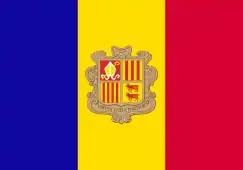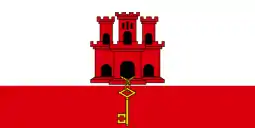Iberian languages
Iberian languages is a generic term for the languages currently or formerly spoken in the Iberian Peninsula.
Historic languages
Pre-Roman languages

Pre-Roman languages of Iberia circa 300 BC
The following languages were spoken in the Iberian Peninsula before the Roman occupation and the spread of the Latin language.
- Aquitanian (probably closely related to or the same as Proto-Basque)
- Proto-Basque
- Iberian
- Tartessian
- Indo-European languages
- Celtic languages
- Lusitanian (disputed: either Italic, Celtic, Para-Celtic or other Indo-European)
- Sorothaptic
- Hellenic
- Afro-Asiatic languages
Medieval languages
The following languages were spoken in the Iberian Peninsula in medieval times, following the fall of the Western Roman Empire.
- Medieval Basque
- Indo-European languages
- Germanic languages
- Italic languages
- Latin
- Astur-Leonese
- Galician-Portuguese (Old Portuguese)
- Old Provençal (Old Occitan)
- Old Castilian (Old Spanish)
- Mozarabic
- Navarro-Aragonese
- Latin
- Celtic languages
- Indo-Iranian languages
- Afro-Asiatic languages
- Berber languages
- Semitic languages
- Arabic languages
- Jewish languages
- Medieval Hebrew (based on Biblical Hebrew)
- Sephardi Hebrew
- Judaeo-Romance languages (also classified as Italic/Latin languages)
- Medieval Hebrew (based on Biblical Hebrew)
Modern languages
The following indigenous languages are currently spoken in the Iberian Peninsula.
By linguistic group

Languages of the Iberian Peninsula (simplified).
- Basque (isolate)
- Indo-European languages
- Italic languages
- Romance languages
- Aragonese
- Astur-Leonese
- Asturian
- Cantabrian (co-dialect with Spanish)
- Leonese
- Mirandese
- Extremaduran (co-dialect with Spanish)
- Catalan
- Eastern Catalan
- Western Catalan
- North-Western Catalan
- Valencian
- Ribagorçan (co-dialect with Aragonese)
- Benasquese (co-dialect with Aragonese and Gascon Occitan)
- French
- Portugalician
- Spanish (or Castilian)
- Romance languages
- Germanic languages
- Italic languages
- Mixed languages
- Caló (Ibero-Romance Romani)
- Erromintxela (Basque Romani)
- Barranquenho
- Llanito
- Sign languages
By country
 Andorra:
Andorra:
 France (Pyrénées-Orientales):
France (Pyrénées-Orientales):
- French (official recognition)
- French Sign Language (official recognition)
- Catalan (official recognition)
- Occitan (not in the Iberian Peninsula, official recognition)

 Gibraltar (UK dependency):
Gibraltar (UK dependency):
- English (official recognition)
- British Sign Language[1]
- Spanish
- Llanito
 Portugal:
Portugal:
- Portuguese (official recognition)
- Portuguese Sign Language (official recognition)
- Mirandese (only spoken in a small eastern area of the Norte region, near Portuguese-Spanish border; official recognition)
- Barranquenho (spoken in the town of Barrancos, near Portuguese–Spanish border; recognized and protected)
- Minderico (only spoken in the town of Minde)
 Spain:
Spain:
- Spanish (also called Castilian, official recognition)
- Spanish Sign Language (official recognition)
- Catalan (official recognition)
- Valencian (official recognition)
- Catalan Sign Language (official recognition)
- Valencian Sign Language (official recognition)
- Galician (official recognition) and Fala
- Eonavian (also called Galician-asturian, official recognition) [2]
- Basque (official recognition)
- Aragonese (official recognition)
- Asturian (also called Bable, official recognition)
- Cantabrian
- Leonese (official recognition)
- Extremaduran
- Occitan (not in the Iberian Peninsula, locally called Aranese, official recognition)[3]
- Moroccan Arabic (not in the Iberian Peninsula)
- Riffian Berber (not in the Iberian Peninsula)
Usage of co-official languages in Spain

Map of co-official languages in Spain
| Autonomous community | Co-official languages | Co-official language speakers |
|---|---|---|
| Balearic Islands (2011)[4] | Catalan | 71.5% |
| Basque Country (2011)[5] | Basque | 32.0% |
| Catalonia (2011)[4] | Catalan | 80.9% |
| Galicia (2007)[6] | Galician | 89.3% |
| Navarre (2011)[5] | Basque | 11.7% |
| Valencian Community (2011)[4] | Valencian | 58.4% |
| Asturias[7] | Asturian language | 42.0% |
See also
External links
References
- Launch of British Sign Language in Gibraltar Archived 2012-04-29 at the Wayback Machine.
- Act 1/1998, March 23 of Principality of Asturias)
- Statute of Autonomy of Catalonia, article 6th and Act 35/2010, October 1st of Parliament of Catalonia
- "Informe sobre la situació de la llengua catalana" (PDF). Observatori de la llengua catalana. 2011. Archived from the original (PDF) on 23 January 2013. Retrieved 6 January 2013.
- "V. Inkesta Soziolinguistikoa". Hizkuntza Politikarako Sailburuordetza. Retrieved 6 January 2013.
- "Situación da lingua galega na sociedade. Observación no ámbito da cidadanía 2007" (PDF). Observatorio da Lingua Galega/Xunta de Galicia. Archived from the original (PDF) on 13 September 2016. Retrieved 2 September 2016.
- "Sociollingüística". Espaciu y Tiempu de la llingua asturiana. Retrieved 6 January 2013.
This article is issued from Wikipedia. The text is licensed under Creative Commons - Attribution - Sharealike. Additional terms may apply for the media files.